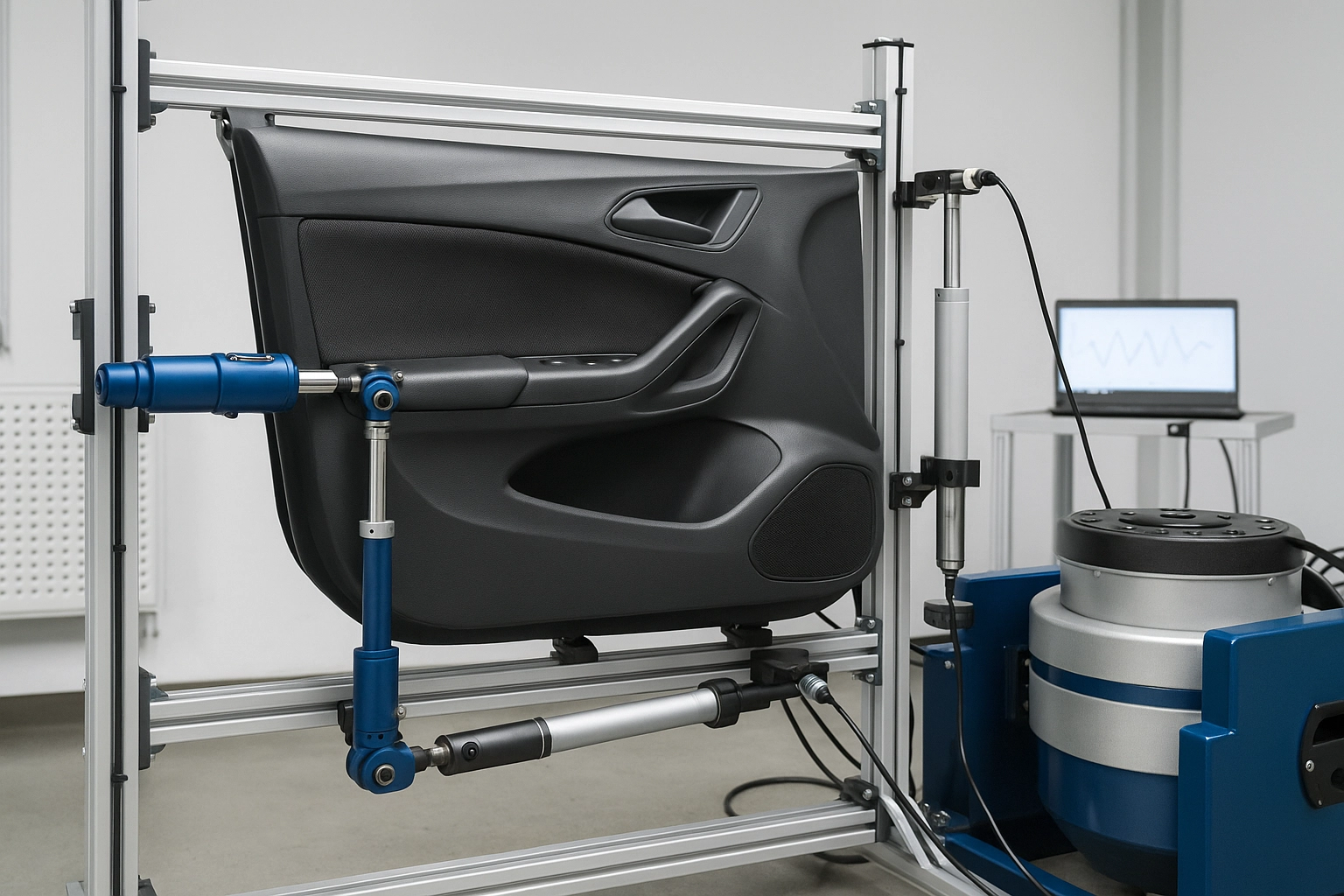GB T12534 Automotive Road Simulation BSR Test
The GB/T 12534-2010 standard specifies a method for assessing the noise generated by automobiles during road simulation tests. Buzz, Squeak & Rattle (BSR) testing is an essential part of this process as it evaluates the structural integrity and sound quality of automotive components under simulated driving conditions.
This test ensures that vehicles meet stringent noise regulations without compromising on performance or safety. The GB/T 12534 standard is widely recognized in China for its rigorous approach to ensuring vehicle acoustics meet national standards, contributing significantly to the overall comfort and safety of passengers while also reducing environmental impact by minimizing noise pollution.
The test involves placing the automobile under a controlled environment where it travels over various simulated road surfaces. Sensors measure vibrations transmitted through different parts of the vehicle, which are then analyzed using advanced signal processing techniques. The resultant data helps engineers identify sources of unwanted noise and take corrective actions during design phases or manufacturing processes.
Understanding the importance of this test requires knowledge about how sound propagation occurs within vehicles and why reducing BSR issues enhances user experience. By adhering to GB/T 12534 guidelines, manufacturers can produce quieter cars that contribute positively towards sustainable development goals set forth by governmental bodies worldwide.
Why It Matters
The quality of a vehicle's interior environment directly affects its market appeal and consumer satisfaction. Noise caused by Buzz, Squeak & Rattle (BSR) can detract from this experience, making it crucial for manufacturers to address these issues early in the development cycle.
- Improves passenger comfort
- Maintains brand reputation
- Enhances overall product quality perception
- Ensures compliance with local regulations
Compliance with GB/T 12534 helps companies avoid costly recalls and reputational damage due to poor sound performance. It also opens up opportunities for international markets where similar standards are enforced.
Industry Applications
| Application | Description |
|---|---|
| Vehicle Development | Evaluates potential issues early in the design phase |
| Manufacturing Quality Control | Monitors production processes to ensure consistent results |
| Supplier Evaluation | Assesses component suppliers' performance against set criteria |
- Vehicle manufacturers can use this test during R&D stages to identify potential sources of noise.
- During production, it serves as a quality assurance tool ensuring every vehicle meets specified standards before leaving the factory.
- Supplier evaluations become more accurate when both parties adhere strictly to these tests.
Eurolab Advantages
Eurolab offers comprehensive GB/T 12534 BSR testing services tailored specifically for the automotive industry. Our state-of-the-art facilities and experienced technical staff provide accurate, reliable results that meet both national and international standards.
- Accurate measurement techniques using advanced equipment
- Precise environmental control systems to mimic real-world conditions
- Comprehensive reporting services for easy interpretation by stakeholders
- Access to specialized knowledge through our team of experts
We pride ourselves on delivering prompt, efficient service that helps clients stay ahead of regulatory changes and industry trends. With Eurolab, you can trust in consistent quality across all stages of your project lifecycle.





